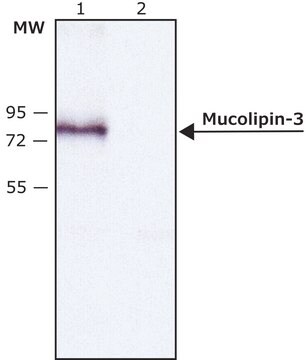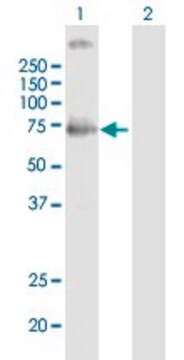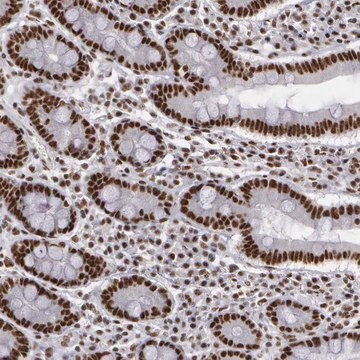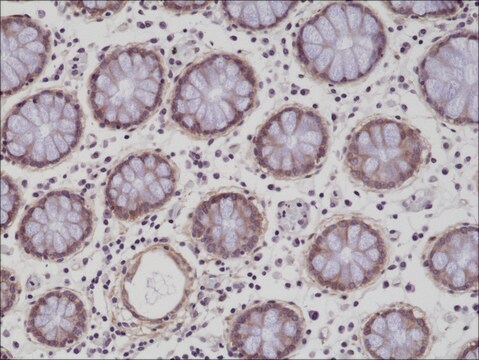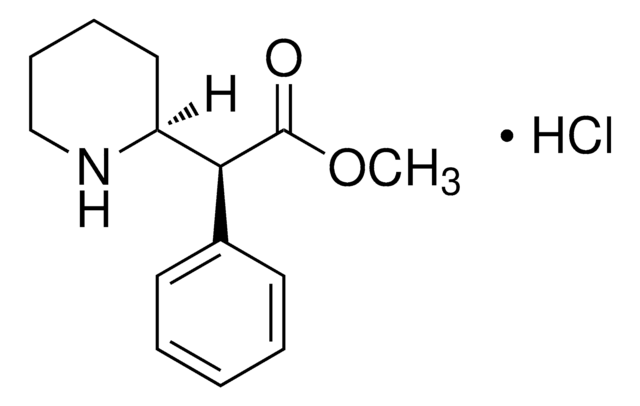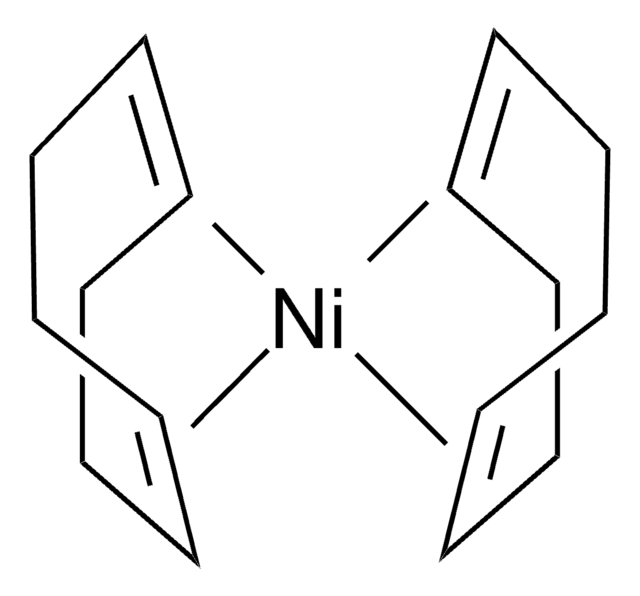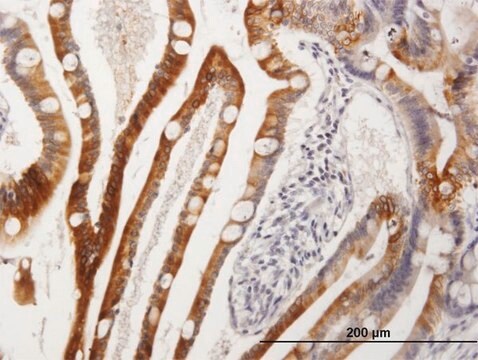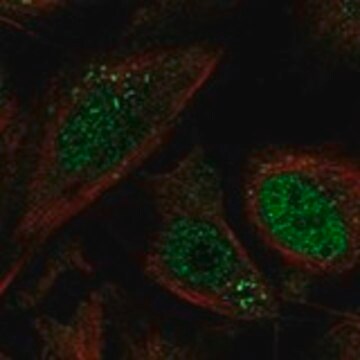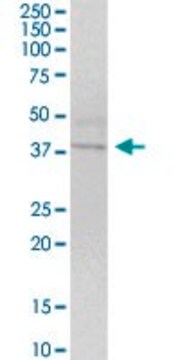M8072
Anti-Mucolipin-1 antibody, Mouse monoclonal
clone MLN128, purified from hybridoma cell culture
Synonyme(s) :
Anti-MCOLN1, Anti-ML4, Anti-MLIV, Anti-MST080, Anti-MSTP080, Anti-Mucolipidin, Anti-TRP-ML1, Anti-TRPM-L1, Anti-TRPML1, Anti-Transient receptor potential cation channel, mucolipin subfamily, member 1
About This Item
Produits recommandés
Source biologique
mouse
Niveau de qualité
Conjugué
unconjugated
Forme d'anticorps
purified from hybridoma cell culture
Type de produit anticorps
primary antibodies
Clone
MLN128, monoclonal
Forme
buffered aqueous solution
Poids mol.
antigen ~110 kDa (additional bands may be observed)
Espèces réactives
human
Conditionnement
antibody small pack of 25 μL
Concentration
~2.0 mg/mL
Technique(s)
immunocytochemistry: suitable
indirect ELISA: suitable
western blot: 4-8 μg/mL using membrane fraction of HEK-293T expressing human mucolipin-1
Numéro d'accès UniProt
Conditions d'expédition
dry ice
Température de stockage
−20°C
Modification post-traductionnelle de la cible
unmodified
Informations sur le gène
human ... MCOLN1(57192)
Description générale
Application
- enzyme linked immunosorbent assay (ELISA)
- immunoblotting
- immunocytochemistry.
Actions biochimiques/physiologiques
Forme physique
Clause de non-responsabilité
Vous ne trouvez pas le bon produit ?
Essayez notre Outil de sélection de produits.
Produit(s) apparenté(s)
Code de la classe de stockage
10 - Combustible liquids
Classe de danger pour l'eau (WGK)
WGK 1
Point d'éclair (°F)
Not applicable
Point d'éclair (°C)
Not applicable
Équipement de protection individuelle
Eyeshields, Gloves, multi-purpose combination respirator cartridge (US)
Faites votre choix parmi les versions les plus récentes :
Certificats d'analyse (COA)
Vous ne trouvez pas la bonne version ?
Si vous avez besoin d'une version particulière, vous pouvez rechercher un certificat spécifique par le numéro de lot.
Déjà en possession de ce produit ?
Retrouvez la documentation relative aux produits que vous avez récemment achetés dans la Bibliothèque de documents.
Notre équipe de scientifiques dispose d'une expérience dans tous les secteurs de la recherche, notamment en sciences de la vie, science des matériaux, synthèse chimique, chromatographie, analyse et dans de nombreux autres domaines..
Contacter notre Service technique